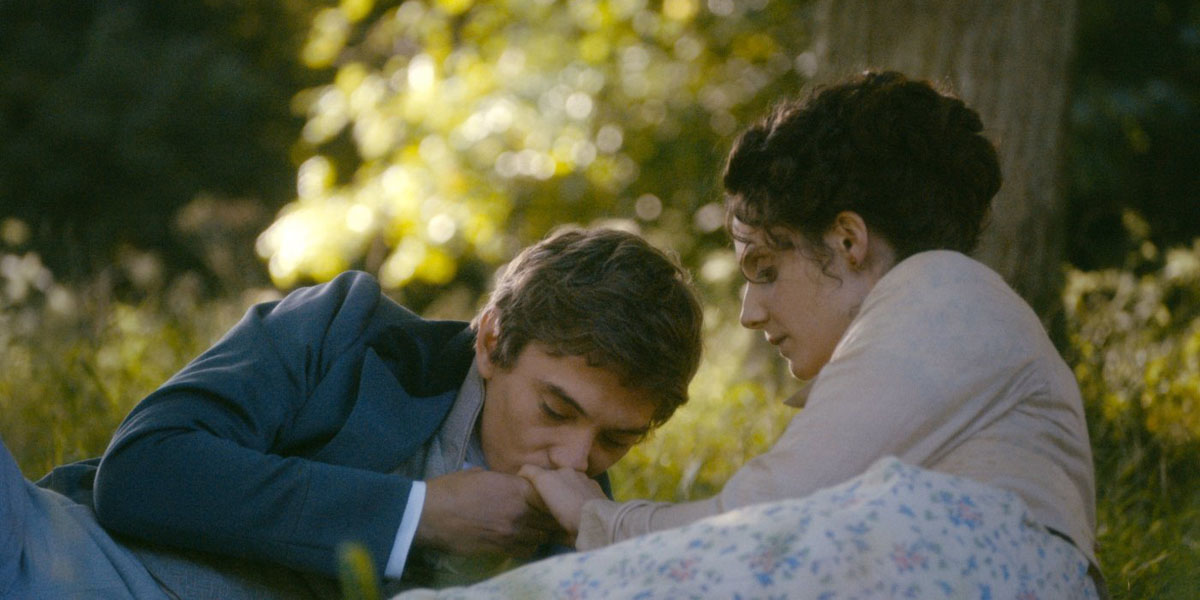“If director Stéphane Brizé, last seen in Cannes with The Measure of a Man, seems an unlikely candidate to film a period-set Guy de Maupassant novel, then it’s our fault for limiting him to a particular time or genre,” begins Jay Weissberg in Variety. “A Woman’s Life [Une vie] has the kind of majesty found not in the grand gesture but the modest detail, the kind that accumulates resonance with each seemingly minor event until the picture of a character becomes as complete as a painting by Ingres. Or a story by Maupassant. Astutely shot by Antoine Héberlé in Academy ratio, which continually calls attention to what’s half-obscured or outside the frame,” A Woman’s Life is a “deeply moving tale of a minor noblewoman betrayed by her husband, her son, and in many ways, her idyllic youth.”
It “begins in rural Normandy of 1819, with an innocent young girl, Jeanne, who has just returned from a convent education to live with her sweet, gentle parents,” explains Roslyn Sulcas in the New York Times. “She soon marries a local nobleman, Julien de Lamare, and the film, like the novel, charts a slow and painful process of disillusionment over three decades. Jeanne learns that her husband is both miserly and chronically unfaithful, and her only son proves to be a spendthrift wastrel who depletes the family fortune, leaving her in near-poverty toward the end.” Brizé tells Sulcas that “the genesis of this film goes back 20 years. (Cialis online) ”
Brizé and co-screenwriter Florence Vignon “have managed to boil down the sprawling, almost 300-page novel into a film just shy of two hours,” notes Boyd van Hoeij in the Hollywood Reporter. “Since they have to cover 27 years in the life of Jeanne (Judith Chemla), from age 20 on, they’ve decided to work like impressionist painters, with many often very short scenes presented in rapid succession, which together, when one steps backs and looks at the final result, offers a kind of mosaic-like overview of a life.”
“This may do justice to the book and its intentions, but not entirely to its keen, precise, richly imaginative perception of the characters and the period,” finds Screen‘s Dan Fainaru.
“Brizé makes much of Jeanne’s relationship with nature and her moods as they change with the seasons,” writes Katherine McLaughlin for Little White Lies. “His dedication to expressing the way in which Jeanne’s soul is ravaged via savage backdrops is impressive. A startling scene which places the handheld camera over still porcelain white, blood-splattered corpses is eerily effective and haunting.”

For Rory O’Connor at the Film Stage, “it recalls—in a certain aesthetic and thematic light—the Danish Dogme films of the mid-’90s, but without the pitch-black misanthropic wit that made that collective famous…. It’s not the first time Maupassant’s book has been brought to the screen (in 1958, Cahiers du Cinema critic Alexandre Astruc made the first stab at it) and it’s undoubtedly a story with plenty to say about a woman’s struggle at the time. However, while the viewer might appreciate Brizé’s lack of compromise, for such a stoic and rather a long period piece, A Woman’s Life offers little else for the audience to cling on to.”
“Jeanne’s life resembles something of what Lady Lyndon must have suffered if Barry Lyndon had been from her point of view,” suggests John Bleasdale at CineVue. “A Woman’s Life is a modest chamber piece, a series of sketches revealing a life of quiet desperation, which eschews melodrama and, for the most part, platitudes but exhibits great tenderness and sensitivity.”
Chemla’s performance is “worthy of the Volpi Cup,” suggests Camillo De Marco at Cineuropa. “I am Jeanne, declared Stéphane Brizé, like Flaubert, acknowledging his proximity to the protagonist.”
The 2016 fall film festival indexes: Venice, Telluride, and Toronto.




